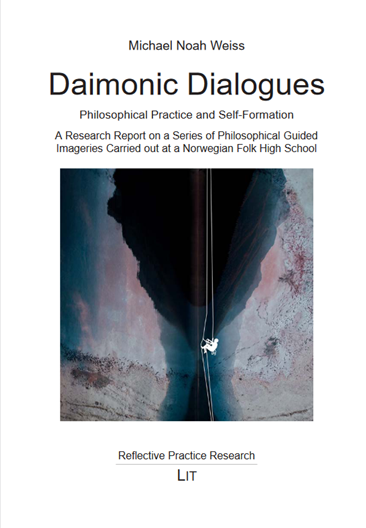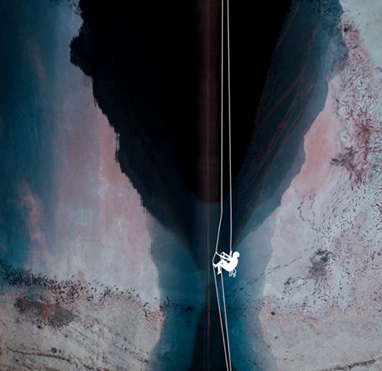
Daimonic Dialogues
Philosophical Practice and Self-Formation
A Reasearch Report
The book, a research report, presents a series of philosophical guided imagery journeys
conducted at a Norwegian Adult Education School in 2019 with some twenty students.
Author: Dr. Michael Noah Weiss
LIT Publishing house
ISBN 978-3-643-91202-2, 144 pages, English language.
This recently published book is available as an ebook or in paperback form.
By Dr. Michael Noah Weiss
The research report presents a philosophical-practical project that was carried out at a Norwegian adult education school in 2019. The main goal of the project was to investigate whether and how philosophical guided imagery journeys can promote self-formation, in the sense of character and personality development, in students.
For this purpose, the researcher facilitated seven imagination exercises based on the Trilogos®Method. In each exercise, the participating students were invited to explore a specific philosophical theme (e.g., meaning of life, art of living) by means of their imagination and intuition and by applying their capabilities for creative and critical thinking.
The thus collected empirical data gave way to three main observations: participating students generally felt calmer and safer thanks to the philosophical practice they engaged in as part of the project; they advanced in their personal development, in an existential way; and a number of them were able to gain important self-knowledge.
The report’s discussion section shows how these three main outcomes can be correlated to and promote self-formation in the sense of character and personality development.
Further impressions of the book:
The research report makes a direct reference to the philosophical understanding and approach to education in antiquity. It emphasizes the main “tool” used by Socrates—the dialogue—alongside the goal of finding a good, ethically upright path of life.
Socrates followed this path with the help of his daimonion, a force that only he could experience and perceive inside his inner being. Socrates continuously realigned his paths in accordance with the guidance he received from his daimonion, thereby maintaining complete self-responsibility and consistency up until his very bitter end—he drank the cup of hemlock—yet in perfect inner peace.
Know thyself, Socrates’ famous maxim, is experiencing a renaissance in our increasingly complex, turbulent and unstable external world.
As a part of this renaissance, empirical studies such as this one serve to reconnect young people with old-new ways, so that education and learning may once again become a meaningful, enriching experience, in turn enabling us to be stable and remain unharmed in this modern world.
It is a renaissance where education can once again become a holistic experience in which the emotional plane plays a major role, as demonstrated in the research report. Further, it addresses the spiritual plane, a superordinate meta-instance, which the (young) person looks to as providing solutions in difficult, unclear and complex life circumstances. Those solutions will happen, or fall upon, each individual at the exact place and setting where they currently find themselves in their life situation.
Following decades if not centuries of separation and specialization, most notably in the academic disciplines, the worlds of experience from ancient schools of knowledge and thought are again being brought together and are having a positive effect—as is well demonstrated in the research reported on in Daimonic Dialogues.
Happy reading!
Your
Trilogos team,
and Dr. Michael Weiss


